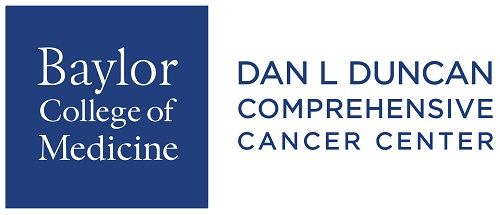
Baylor Awarded CPRIT Grants to Support Cancer Research

Baylor College of Medicine has been awarded more than $17.4 million by the Cancer Prevention & Research Institute of Texas to support new cancer research and programs, core facilities and recruitment of new faculty.
Baylor College of Medicine has been awarded more than $17.4 million by the Cancer Prevention & Research Institute of Texas (CPRIT) to support new cancer research and programs, core facilities and recruitment of new faculty.
More than 70 grants were awarded to institutions across Texas, totaling close to $136 million to advance the fight against cancer, including nine grants to Baylor College of Medicine. To date, CPRIT has awarded $2.4 billion in grants to Texas research institutions and organizations through its academic research, prevention and product development programs.
“Without a doubt, CPRIT has been transformational for cancer research, not only for Baylor College of Medicine, but for medical institutions across the state. Its support has helped make Baylor’s Dan L Duncan Comprehensive Cancer Center one of the best programs in the country,” said Dr. Adam Kuspa, senior vice president and dean of research at Baylor.
“These CPRIT grants provide needed resources to carry out innovative translational research, to support core resources, to fund prevention and screening, especially in our underserved community, and to recruit new outstanding faculty for the Dan L Duncan Comprehensive Cancer Center,” said Dr. Kent Osborne, director of the center.
Dr. Hashem El-Serag, chair of department of medicine at Baylor, received one of two first-ever awards through CPRIT’s Collaborative Action Program for Liver Cancer, a new statewide initiative investing up to $18 million to reverse the rising rates of liver cancer, including the most common type, hepatocellular cancer. The $3 million grant to El-Serag will support the Texas Collaborative Center for Hepatocelluar Cancer.
“Texas has the highest incidence rates of hepatocellular cancer in the nation,” El-Serag said. “Our CPRIT funded Center will house infrastructure to support and enhance research collaborations among liver cancer researchers; to educate providers, researchers and the general public on best practices and opportunities to reduce the burden of liver cancer; and to engage private and public entities in policy initiatives.”
Additional awards to Baylor College of Medicine include:
High-Impact/High-Risk Awards
Dr. Yohannes Ghebre, associate professor for radiation oncology and director of radiation biology research and education Topical Esomeprazole for Radiation-induced Dermatitis — $199,500
Dr. Robin Parihar, assistant professor of pediatrics — hematology/oncology Targeting Cancer Associated Fibroblasts with Anti-IL-11 Secreting CAR T Cells — $199,920
Core Facility Support Awards
Dr. Steve Ludtke, professor of biochemistry and molecular biology New Capabilities for Cancer Research in the TMC CryoEM Cores — $5,381,089
Early Translational Research Awards
Dr. Bryan Burt, associate professor of surgery Novel Endoscope-cleaning Port for Minimally Invasive Cancer Surgery — $1,349,759
Expansion of Cancer Prevention Services to Rural and Medically Underserved Populations
Dr. Jane Montealegre, assistant professor of pediatrics — hematology/oncology and deputy director of the Office of Outreach and Health disparities at Baylor’s Dan L Duncan Comprehensive Cancer Center Expanding a Community Network for Cancer Prevention to Increase HPV Vaccine Uptake and Tobacco Prevention in a Medically Underserved Pediatric Population — $1,287,834
Recruitment of First-time Tenure-track Faculty Members — $6 million (Recruitment of faculty is currently underway.)
CPRIT launched in 2009 following a constitutional amendment to commit $3 billion in the fight against cancer over 10 years. Learn more, and follow CPRIT on Twitter and Facebook.




































